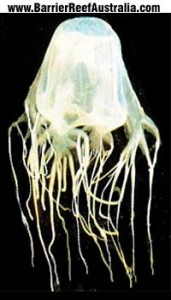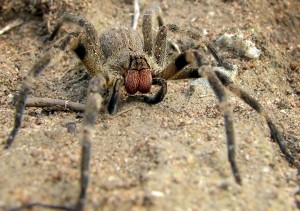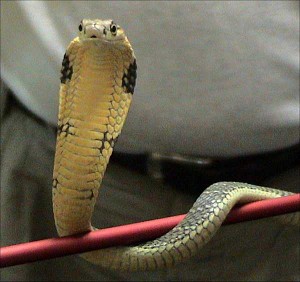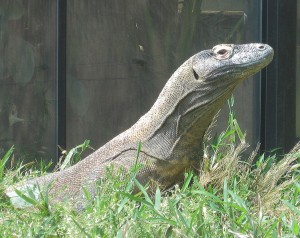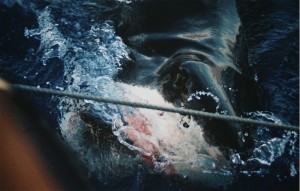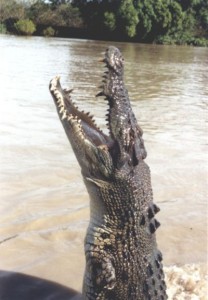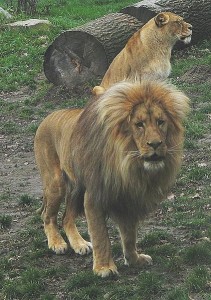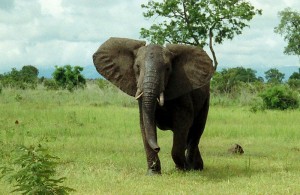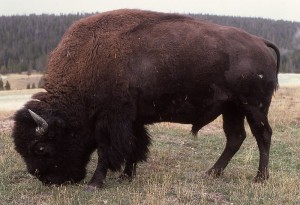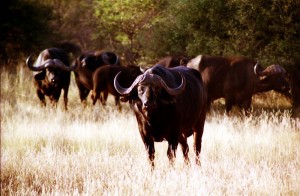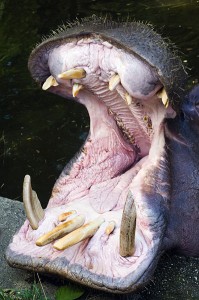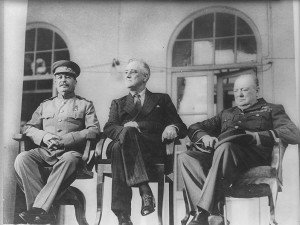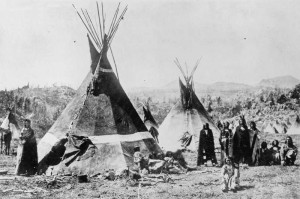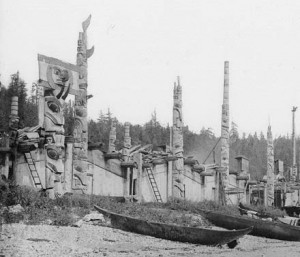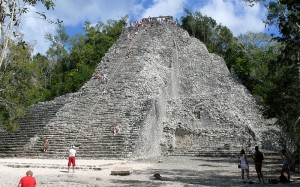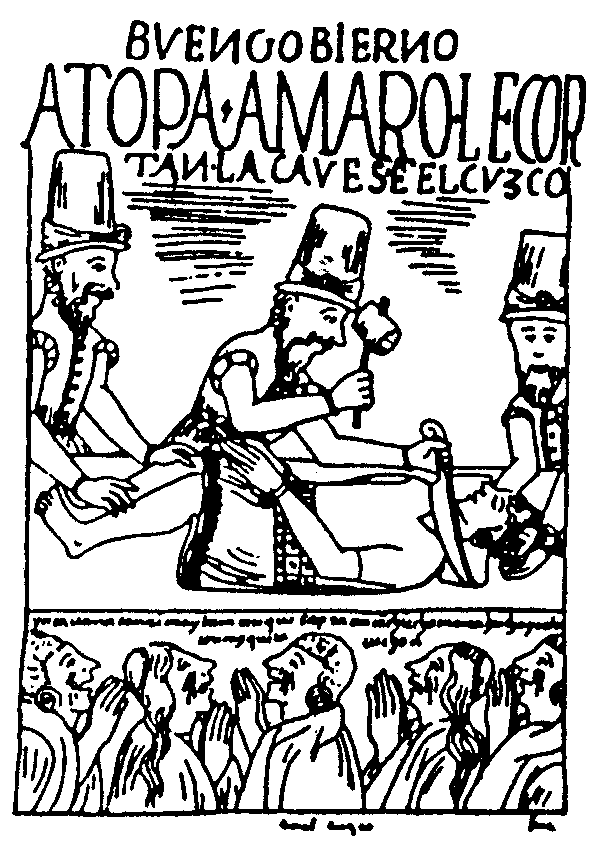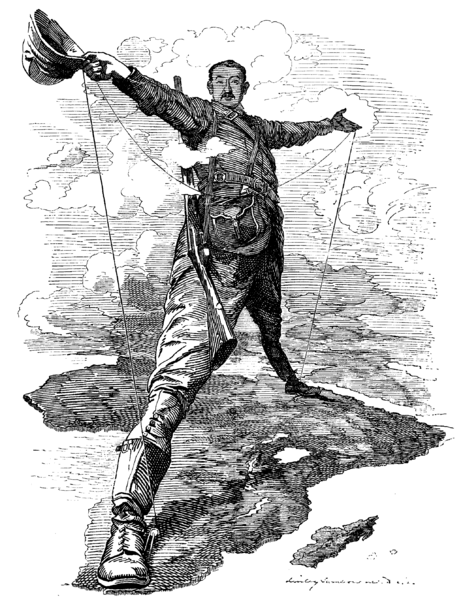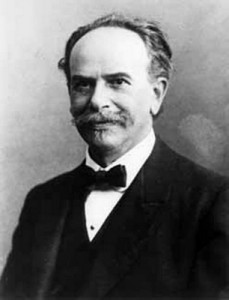“Tell us a story, grandpa Yurbkla!” squeaked Leesly. The little gobling was hopping up and down on her grandfather’s lap so hard that his knobbly kneecaps were clacking together like maracas.
“Yes, story!” seconded Treltho, the secondborn of Yurbkla’s grandchildren. “Story! Story!”
The others, at least eight of them, all chimed in, a high-pitched chorus reminiscent of warblers. “Story! Story! Please grandpa! Story!”
Yurbkla chuckled and leaned back in his rocker, puffing a bit on his rock-carved pipe. “A story, eh? Which one would you like? The giant and the gremlin? The tale of Orvxo Red-Eye? Acranod and Degritra? The –”
“Tell us about the great war, grandpa!” piped up Leesly again, squirming so hard with excitement that she almost fell off Yurkbla’s lap.
“Yes, tell us about when you were in the war, grandpa!” said Treltho, happy to play yes-man to his older cousin.
“Tell us! Tell us! Tell us! Please grandpa! Tell us! Tell us!” chorused the goblings.
“I will tell you,” shouted Yurkbla, over the noise, “if you’d all care to be quiet for a moment, my little ones!” The hubbub and tumult dropped into a respectful silence quickly as the goblings shushed one another urgently. “This one again, eh?” said Yurkbla, shaking his head. “You’ve all heard it a dozen times…”
“Yes!” said little Queever, triumphantly. “That’s why it’s so good!”
Yurkbla raised his gnarled, hairy eyebrows at the youngest present of his children’s children. “Mmm, could very well be true, that.” He gazed out proudly over his audience of grandchildren; there were enough to make his little stone-walled study cramped. What wasn’t covered with books was covered with goblings, and he felt very elderly and very happy. With a ritualistic air about him, the old goblin knocked his rock-pipe against the side of his chair, shaking some dust out of it.
“Now,” he said, as his bent old fingers patiently refilled it. “Now…this was all a very long time ago, my little goblings – a long, long time before your parents were born. Why, I hadn’t even met grandma yet!” Some of the younger goblins present made shocked noises at this fact before being re-shushed by their siblings.
“It was at least forty years ago,” said Yurkbla, raising his filled pipe to his lips as he lit it. He took a puff, and the rich, smoky smell of trell-herb filled the cozy study. “Back then, we goblins didn’t live in fine places like this.” He waved his pipe, taking in the snugly carved warren walls. “No, we lived in damp, wretched caves up in the hardest of the hard mountains, where a gob was lucky not to be eaten by a dragon if he went for a long walk!” He swept the room with his eyes, giving his audience an expectant look. “Does anyone know why this was?”
“I know!” said Treltho, beating his cousins and brothers and sisters to the punch. “It was humans, wasn’t it!”
“Yes, that’s right,” said Yurkbla. “At least, that’s half of it. Humans and elves, goblings, humans and elves. Those were the two great enemies of goblins in those days, my loves, and they were on top of the world back then. A gob poked his nose out of the mountains, it’d be cut off! They hated us, goblings, hated us more than anything, and I tell you this” – he broke off for a moment for another puff of his pipe – “I’ll tell you this, what saved us was that they disliked each other, too. Not half so much as they hated us, of course, but enough to keep them from ever coming into the mountains together and stamping us out for good.”
“Why didn’t they like each other, grandpa?” asked Leesly, just as Queever asked “why did they hate us?”
“One at a time, one at a time!” the old goblin laughed, holding up his hand. “Children, they didn’t like each other because of two silly things: envy and arrogance. The humans couldn’t stand that the elves lived so much longer than they did, and the elves couldn’t bear the humans because they considered them to be so far beneath them. They were cruel to each other, but never more than that, because they hated us more, and they hated us for a reason sillier still. I’ll tell you why they hated us, goblings, and it was a very small reason for such a great hate.” Yurkbla scowled, doubling the number of wrinkles visible on his face through his long, white beard and moustaches. “They hated us because we were ugly to them.”
He waved a hand hastily to quell the rising tide of protest. “Shush, my loves! They called us ugly, they did, never thinking that they looked just as bad to us! And they looked down on us, just as elves did to humans, only more so, and, well, there were always hotheads among us, just as with them. People got hurt, goblings, human and elf and goblins all, and that was all the excuse they needed to never forgive us. They took up arms, the humans and elves did, and they hunted our people out and cut them down. Never mind that most goblins didn’t even know they existed, and just wanted to be left alone! Never mind that they were killing gobs that didn’t even know what a weapon was sometimes, let alone how to use one! No, they hunted us down and cut us out, burned us and harried us, my little goblings, until all that was left were the ones quick enough and nimble enough to hide where they never came, in the mountain caves.”
The old goblin slumped in his chair and seemed to shrink inwards a little. “We hated them back then, yes we did. And we snuck out and raided them, and they harried us and cut us out, back and forth for years and years. That’s how it went for years, children. Years and years, for hundred of years before I was born, and up until I was a spry young gob maybe of fifteen years.” His eyes clouded over with memories. “That’s when it all changed.”
“The war! The war” shouted Leesly, perilously close to her grandfather’s ear.
“Not yet, not yet!” laughed Yurkbla. “The war took time, goblings! But the first whisperings came scurrying about in springtime to the goblin-city I lived in then. It was called Underrock, and it’s famous to this day – your teachers told you of it, didn’t they?” Yurkbla nodded in satisfaction at the many echoes of “yes” around the room. “Yes, well, children, what they’ve told you isn’t the half of it. It’s grown more impressive every year, and when I was born there, it was the most splendid of all goblin-cities ever made. Still is, and it’s the capital of all goblinkind in the world… but we were speaking of the spring before the war, the spring when I, a gob of fifteen, first heard the gossip.”
“Ah! The whispers that came about the great corridors of Underrock, children! They were too wild, too story-made to be true! A goblin, a great goblin, a goblin that was said to be half-troll, was rallying the goblins of the mountains! Such things had been tried before, my goblings, and had always come to nothing – all goblin war-leaders bragged about their might, and a gob that rumour made ten feet tall with elf-breaker shoulders would always turn out to be a regular four-foot-two with a runny nose and cross-eyes. Much like young Criiclo there.” He laughed as the gobling squealed in distress and grabbed at her face. “A joke, precious, nothing more – you’ve a lovely nose, and eyes to match. Anyways, the whispers came, and the only unusual thing about them was that they would not stop. Most war-leaders lead a raid or two and then stop while their luck holds, or else die on elven arrows or human swords, but this one the gossips would not let go of! A village garrison ambushed and killed to a man, an elf-town sacked, caravans wiped out – there was nothing that this gob dared not do if he had the men, and there was nothing he would tell them to do that he would not attempt himself! He killed elves in hand-to-hand combat, he defeated mounted knights with nothing more than a sword and his wits, he was at the forefront of every charge! And then the hero’s name began to leak back to us. Krazzkra.” Yurkbla’s shoulders straightened, and he sat proud and tall in his chair, remembering. “From that moment on, it wasn’t rumour anymore. And then, as spring drew into summer, he came to Underrock.”
“A great tour of the goblin-cities was his plan, to find support for his ultimate strategy. He was going to move past raiding, and take the fight to the kingdoms of the humans and elves! If any other goblin had tried such a thing, he would’ve been left alone and mad where he sat, but Krazzkra… when he promised victory, you saw it, and you’d never wanted anything so badly in your life. By the time he got to great Underrock ten thousand goblins or more were in his trail, all outfitted with spear and shield and sword, and every one of them was envied by all our youngfolk. Including me. Yes, goblings, from the moment I saw a soldier of Krazzkra walk by, I knew that was what I wanted to be: a goblin that stood tall and fought the ones that had hunted us for so long. And won, won against them. I would’ve signed up right then and there, but first, Krazzkra made a speech in the hall-cave of Underrock. I remember that, the first time I saw him, far-away on the speaking rock. He was at least twice the size of every goblin around him.”
Yurkbla took a small break to puff on his pipe and gather his thoughts, and then fixed his audience with a look through green trell-smoke.
“Goblings, that speech took my decision and rammed it home like a meteor. Krazzkra spoke of death, and how easily it could find us, far from home. He spoke of the dangers and discomforts and hardships of warfare, and he spoke so well that for a moment, he had us all convinced that the best thing to do would be to go home and seal yourself inside, never to leave.”
“But you didn’t, grandpa!” said Leesly, proudly.
“Yes indeed I didn’t, little love, and that was because of what he said next. You see, right then, right when he had warned everyone properly of what his plan might cost them, Krazzkra told them what it might gain.” Yurkbla’s eyes shone with past glory as he spoke. “Goblins that would walk proud in the forests and fields again. Goblings that didn’t have to be afraid of elves or humans if they went out to play. Goblin-cities that wouldn’t have to be hidden, that could have grand, glorious tunnels and halls and entrances that showed they were proud! Goblings, when Krazzkra finished speaking, I believe there wasn’t a single healthy gob between the age of fourteen and sixty that wasn’t planning to sign up. I did myself, not one hour later.”
“Now, many of those goblins that went to sign up left soon after, disappointed. Krazzkra wasn’t taking any gobs that couldn’t hold their own – that wouldn’t just get them killed, but other soldiers too. If you were too old, too young, too weak, too sickly, then one of the sergeants on recruiting duty gave you a very polite goodbye and sent you back home.”
“I was just old enough to be kept, and – although this may seem unbelievable to you children – I was spryer and stronger than any gob my age I’d ever seen, and nimble as a mouse.” Yurkbla grinned, showing crooked old yellow teeth, as his grandchildren giggled at him. “Laugh you may, good goblings, my good grandchildren, but it’s true, I say! As a matter of fact, it was precisely because of this that I was picked for a very mysterious duty.”
“Now, I was so happy after the sergeant told me I was in that I almost missed the question that came right after that.
‘Say what?’ I asked.
‘How’re you around animals?’ he repeated, in that special, weary voice that all people use when they’re saying something once too often.
‘Oh,’ I said, remembering the rats I’d kept for years, and the long, dangerous hours I’d spent trying to find mountain goats (but that’s another story, my loves), ‘I like them.’
‘Good,’ says the sergeant. ‘Report to barracks twenty, after you make your stop at the quartermaster.’”
“I nodded and got my equipment. I can still recite it to this day, children: one suit of scale-male armour (a bit too big, with speckles of rust all over it), one spear (to help me fight long-armed humans and elves), one short sword (for emergencies, if I lost my spear or got into really tight quarters), and a soldier’s pack (with lots of hard rations, a big water container, and a little sleeping roll). When I got to barracks twenty, however, I got my real shock. At first I had trouble finding it, and it turned out that it was because it was a long ways away from all the others. It didn’t look any different; it was a big square tent, just like all the others, but there were quite a few guards around it, making sure no one got inside that wasn’t supposed to be there. I was a little nervous, but I had all the right papers and they let me in without trouble.
“Well, I got in there, and the first thing that happens is that someone yanks a bag over my head and says ‘get over here, and don’t take off the sack.’ I was annoyed, but not that annoyed, and besides, I didn’t feel like starting off my stint in the army by being a poor sport, so I went along. I was taken a good long ways with that sack over my head, and then someone told me to stop and pulled it off. And there, right in my face, was the biggest animal I’d ever seen.”
“I didn’t yelp or shriek, children. I was too scared at first. And then I got a better look at it, and I realized what I was looking at. It’d been in one of my mother’s books.
‘Is that a horse?’ I asked the sergeant who’d led me here, voice filled with disbelief.
He grinned. ‘No – but it is related. It’s a pony. Scared?’
I took another long look at the creature. It snorted a little, and I reached out and petted its nose. It was very soft and very warm, and it made a whickering sound and shoved its big head against my hand.
‘No,’ I said, and meant it.
‘Good,’ said the sergeant, his smile widening, ‘because you’re going to be riding one.’”
Yurkbla laughed around his pipestem. “Ride a horse – or at least the relative of one?! Goblins had never done such a thing! Humans did, yes, and elves, but never goblins. And that, it occurred to me, though I was young and foolish, was one of the reasons they had always overcome us. We might’ve been more numerous than they were, but they always had the better equipment – especially the elves – and the mounts, and we’d come off the worse for it.”
“The ponies,” continued Yurkbla, blowing an expert smoke-ring, “were the fruits of dozens of carefully-planned raids. Krazzkra had assembled some hundreds of them – enough for a small cavalry force! Imagine how proud I was when I found out I was going to be one of the goblins that would ride!” He chuckled as Queever tried to catch the smoke-ring, only to watch, disappointed, as it slid through his little green hands. “Sorry child – you can’t grab those. Anyways, I was disillusioned somewhat within a short time. There were a thousand or so goblins that had been deemed fit to learn to ride (barracks twenty soon was joined by many other tents, all set aside in a similar fashion), and only three hundred or so ponies. Krazzkra had also assembled a hundred or so full-blown horses, though only the very biggest and strongest of goblins could handle such beasts – I certainly wasn’t one of them. Krazzkra, of course, had already learned something of riding, and rode a great grey stallion that towered over every other mount. He did it out of practicality, not just showiness, goblings – no other goblin could even come close to being large enough for it, and he had no wish to see such a beast, a real trained warhorse, go to waste.”
“So, since there weren’t enough mounts to go around, we took it in shifts to learn to ride. I was a decent enough student – slower than some, faster than many – and before long we were teaching the ponies. They had to learn to charge in formation, and ignore fighting and loud noises, and to kick and bite enemies; and it was very hard to teach that sort of thing without getting someone hurt!”
“But there were enough ponies, weren’t there, grandpa!” said Leesly with glee.
“No there weren’t, my little nut, not as long as we trained as we did,” said Yurkbla. “But you’re right – there were enough, it just took us a while to see it. Some clever gob – most think it was Krazzkra, though he took no credit for it – saw that with a reshaped saddle, a pony could carry two goblins. From then on, every one of our hundred cavalrymen rode, and was trained for both roles: archer and spearman. The spearman held a great lance or polearm (though he was called spearman regardless of his weapon) and directed the mount. A spearman had to have good solid arms to lug that weapon around one-handed, and I tell you goblings, at the height of my fitness, after our training, I could hold a gob my weight over my head without breathing hard!”
He shook an admonishing finger at his laughing grandchildren. “Yes, yes, laugh at silly old grandpa who couldn’t hurt a fly now, but it was true, back in the day, my day! Now are you going to keep laughing, or are you going to hear the rest?”
“Now the archer,” he said, as the goblings settled down, amidst badly-muffled giggles, “the archer had a tough job too: he had to fire a bow from atop a galloping pony and hit a mark that could be as small as Queever’s hand! Naturally, you needed strong arms to pull that bow, but that wasn’t a problem after spearman training. No, what was a problem was building up strong legs to hold on properly to the pony while you used both arms to shoot! We all were trained to march, and had good strong muscles to begin with, and the saddles were cunningly shaped so you could cling on good and tight, but we didn’t trust those farther than we had to, and by the time we were done training for archery we could run laps of Underrock on nothing more than a breakfast of lichen and fungus! And both of these tough, arduous jobs had to be learned by each and every one of us thousand pony-gobs. That was a lot of training that the rest of the army never got, goblings, and soon word got around that you only got into a brawl with a cavalry gob if your family was prepared to mourn you properly. We were the fittest, and because there were so few of us, we got more special training, to make sure that we kept being the fittest. Unarmed fighting, ducks and dodges, how to ride all day in heavy armour without so much as getting sore; because what’s the sense in putting all that time into a goblin’s training if he’s as easy to bring down as a regular soldier?”
“Still,” said Yurkbla, absent-mindedly untangling a knot in his beard, “we never let it go to our heads. We were strong and tough, but we weren’t veterans yet. The sergeants that taught us knew more than we did in every way, and the lieutenants knew more than them, and the captains still more, and even the goblins at the very top of riding skilfulness and craft never let it go to their heads, because they knew that Krazzkra was even better than they were – for he had taught them.”
“Krazzkra never let anything go to his head. If there was a more careful goblin in the world, I never heard of him. He may have been half-troll – oh yes he was, children, he was! No half-truth that! – but his mind was the most goblinish of any I’ve known. All through that busy summer where we trained in Underrock, he was either sitting in his tent planning out all the things that could go wrong on the campaign, and what to do about them, or he was training himself. No other gob was a match for him, so he’d fight the very best in teams of twos and threes and fours. When that wasn’t tough enough, he’d fight unarmed, or un-armoured, or both. Always remember that whatever the history books tell you about him is the stuff that’s most believable.”
“Like I said, we stayed in Underrock for that summer. Krazzkra’s tour was no longer needed – gobs from all the mountains bade goodbye to family and left alongside friend, making their way to the great goblin-city. Many were sent back, dejected, but even those that weren’t quite young or fast enough found positions as mess sergeants and other non-field roles. Important stuff in its way – never let anyone tell you that an army doesn’t need paper-pushers!”
There was a lull in the story while Yurkbla refilled his pipe, as the goblings fidgeted impatiently. “Patience is a virtue, my little apples,” he said, serenely, as he brought a match to the stony bowl of the instrument. “Now, as I was saying…”
“Well, as summer’s end appeared on the horizon, Krazzkra mobilized us. We of Underrock just had time to say goodbye to our families (at least, the relatives who couldn’t or wouldn’t come – on second thought, make that “couldn’t”) before we were marching out of dozens of holes and tunnels and into the bright blue sky that lay beyond them. Oh how we loved it! We’d been stuck underground for most of our lives, like all our ancestors for hundreds of years, but we’d never ever grown to love it, and ever we’d longed for the surface for all those generations…” Yurkbla stopped for a moment to wipe something out of his eyes. “Sorry, loves. Smoke got in my eyes for a moment.”
“Anyways, we were happy and hardy and the miles of mountains rolled away as we marched south through passes and over hills, along a route Krazzkra’s scouts had found and marked over the summer. Cache locations had also been charted, and we made sure to leave ourselves plenty of defensive fortifications. If the campaign went well, they wouldn’t be needed, but like I said, Krazzkra was clever and careful. Even if every gob of us should fall, no enemy would find an easy path into our mountains!”
“And then we left the mountains, and entered the foothills. A rough place, but nothing compared to the stony peaks, and it was like paradise for us. We had ample supplies, but some of us caught rabbits and the like on the side and cooked them. Delicious, they were. Krazzkra came down pretty hard upon poachers about a week after this started – he told us the foragers were rounding up enough supplies for us all to eat, without our greedy selves stripping the landscape. After that, if someone took a pheasant or hare on the sly, his friends took care of him, and their sergeant looked the other way. No one wanted to disappoint Krazzkra.”
Yurkbla looked thoughtful for a moment. “You know, I suppose he was a general. Certainly every other gob under him had a military title appropriate to station… but he was just (no, not “just”, never, ever “just!”) Krazzkra to us. He didn’t need a title to command respect.”
“Anyways, I can’t tell you exactly how the campaign unfolded half as well as one of your teachers could – I was just a trooper, not one of the planners. All I know is that my first battle was at a human town called Kronal’s Hole.”
Yurkbla winced. “I don’t know who Kronal was, but the place was a hole all right, my goblings. A wretched, nasty little place that oversat a river we had to cross. There had been other battles, little skirmishes and so forth, but this was the first spate of real opposition. A large human army was camped on the other side of the river. Krazzkra decided it was time to use his secret weapon, and so we cavalry gobs were called up. I was spearman, partnered to a gob named Jorrint. I knew him from training, and he was a crack-shot if there ever was one. We were handed our pony – a beautiful little palomino that we’d named Chutz – and were told to move off into the woods at the river’s edge, and wait for the retreat.”
Yurkbla laughed. “It was beautifully done, children. Our main army segued across the river, made a few stabs at the humans, and then fled with feigned fear. Foolhardily, they followed and allowed the order of their lines to slacken, and then, as they entered the woods and had to reel in their cavalry, we struck!” He banged a hand on his rocker arm, making some of the littler goblings jump.
“Their horses might not be able to move through the trees, but our ponies could, and the last thing they’d expected to find were well-organized, regimented goblins waiting and prepared in hidden trenches. Ah, the trenches! We charged them again and again until they learned to fear us as much as any other mounted warriors, and then we herded them right into the trenches! Oh, what a beautiful sight the battle unfolding was! The genius inherent in it! We would have followed Krazzkra anywhere before, but now any one of us would’ve died for him without hesitation. And – mark this now, goblings, mark it very well! – what made him so great a leader was that he did his very best, at all costs, to ensure that we did not have to die for him at all.”
“The battle was a complete success. We killed hundreds upon hundreds, and took many more prisoner. Jorrint felled so many humans he lost count, Chutz himself took down three that got too near, and I took care of the rest with my spear. The city was made into a temporary camp while Krazzkra sent out scouts and foragers, and made it a place of safety which we could withdraw to at need. We would do that half-a-hundred times over that autumn and winter, goblings, and never but once did we have to flee to one of those prepared sanctuaries. And that once – Ah, that once! – that was for a very special reason, which I will come to shortly…”
“We fought all autumn, as the leaves turned red and gold and fell like coins of nature herself. We advanced, and fell back, and ambushed, and raided, and pounced, and we never left a battle feeling as though we had come off worse. Even on the occasions where retreat was needed, we always left before any serious incident could occur, leaving our enemies frustrated. Then we’d tackle them where they didn’t expect it.” Yurkbla cackled.
“Keeps weren’t a problem. We’d threaten siege and let them see our numbers. That didn’t work the first time, so we built great siege engines: moving towers and mighty catapults. Half the army spent three months on that siege, my loves, but it ended in triumph, and after that many of the keeps threw their doors wide to us in despair. We spared civilians, and imprisoned those soldiers who surrendered in their own dungeons. Even in victory, under Krazzkra’s leadership we were more than we could’ve dreamed. The elves and humans had called us monsters – they still did – but we spared their lives as they would not have our people. I ask you this, goblings – who were more monstrous then, eh?” He waved a hand. “Rhetorical question, no need to answer. Anyways, we fought onwards. And then, in late January, victory was near. We had completely conquered the humans’ kingdom, and had pushed well into the elven territories. Krazzkra made his base at a provincial capital and left many of the paper-pushers and supply officers there, along with countless prisoners, wardens, and casualties (sick and wounded both – the cold weather had spread many terrible colds, among other things). Their capital lay at hand, and we had just brought up the siege engines and issued demands for surrender when the news arrived, brought by an out-of-breath runner.”
“What was it!? What was it!?” yelped Queever, plainly unable to be silent any longer.
“Quiet down a bit, little one,” said Yurkbla. “The elves had snuck a sizeable army out behind our backs and were besieging the base. Hundreds of wounded and ill goblins lay there, helpless, defended by very little. Krazzkra had made his first mistake – he had not anticipated the elves being able to sneak out such a large force – but it was also the very last I ever witnessed. The base was a good distance away, and he decreed that a good half of the army would head back, post-haste!”
“Then, as the cavalry mounted up and slipped into formation, Krazzkra himself rode up to us, on that monster grey of his. I was in the front line, and he couldn’t have been more than twenty feet from me. He was at least seven feet high, and his eyes were a bright troll-yellow, rather than goblin-green. A shield bigger than me was slung at his saddle, and he gripped a great halberd that a human or elf could barely have lifted.”
“‘Goblins,’ he said to us. ‘We need to get there fast as we can. The quicker we put a stop to this, the less likely they try something like this again. I’m going ahead of the foot soldiers, and you’re coming with me.’ He swept us with those yellow eyes, and we paid attention as we never had before. ‘It’s risky to leave behind the rest like this,’ he said (oh the distaste in that one word, “risky,” my children!), ‘but if we linger, goblins will die because of our slackness.’ He stood up in the saddle.
‘Well? Think you can make it?’ he yelled.
‘Yes sir!’ we all called back, loud as we possibly could. My voice was scratchy for a good hour after that response.” Yurkbla made a theatrical rasping cough or two, and the goblings laughed.
“Anyways, Krazzkra spun his horse about and set straight off for base at a good clip; not enough to exhaust all our horses and ponies, but definitely harder than we’d ever pushed them before. They didn’t mind – it was as if they’d understood him as well as we had, and maybe more. Still, it was lucky that it wasn’t snowing that night, or we never would’ve made it all the way.”
“We rode on and on, little goblings, and we reached that camp just as the elves were about to break the main gates of the occupied town. We caught them by surprise, and we charged them. By all that is beautiful, my loves, I can never remember feeling so strong as I did when we charged them there.”
“Of course, it was scarcely over. Many of the elves were mounted, and most of them had learned that goblins fought harder than they’d dreamed, but we had right on our side, and although that is most certainly not all you need to win a battle, little goblings, it gave us a terrible hard determination to win. Not that we needed it, of course – Krazzkra had said we needed to do this, and so we had to do it.”
“We did, too… though it was a hard and bitter fight. Goblins died in droves, but so did elves. Still, too many of us died – the elves and humans may strut and boast about vanquishing “countless hordes” of goblins where “the moment one falls, two more take its place,” but it’s pure and simple rot, children. We outnumbered them, but not by much. And at their head, a man in armour so white stood – their general, the one who we had seen leading the elven forces – smiting down every gob that dared a blow at him. He was a half-elf, so we heard after the battle was won, and we hissed in hatred and respect at his memory. He escaped with a large number of elves as they lost the battle. How did they lose it, you wonder, with such a champion? Well, pure and simple, my little nuts, so simple you may guessed it yourselves. Krazzkra won that battle for us. He fought like ten trolls, and wherever he went elves fled in fear, dropping that pretence they always had. “Elves fear nothing,” ha! Rubbish and rot, it was.
“The enemy got away, or at least two-thirds of them did, I heard Krazzkra say, but many fell or were captured. The elves were dangerous yet, but they would be dangerous on our terms, not theirs. We had saved our weak, and we felt the better for it. It even eased Jorrint’s passing somewhat – did I not mention? He fell in battle, I know not how. All I know was that at one time, I turned around and he was not in his saddle, and I never saw him again, living or dead.”
Yurkbla paused to take a long, slow draught on his guttering pipe.
“But that wasn’t the end, was it grandpa?” inquired Treltho.
The old goblin blew a few smoke-rings, passing one through another through another. “No it wasn’t, grandchild. Not indeed. The siege was resumed – though the base was more heavily guarded – and within a week the first boulders and volleys of burning oil were flying into the elven capital. The elves did not sit idle – they had their own engines, and they used many clever tricks of magic as well (our shamans were never creatures of war, and they kept to healing the sick and warding us from harm as best as they could), and there was never a week without some form of raid or another upon a perceived weak point. But we never faltered or failed to oppose their actions, because it was all but a great game of chess between Krazzkra and the elven commander, and they were both masters of the sort that never sacrifice a pawn, and never need to. Attack and parry, strike and counterstrike: those were our days. Our morale never flagged, but the elves gradually lost some of their colour. They had always fought on the basis that they were inherently better than their enemies, and that is a flaw that goblins have yet to fall into! Krazzkra was the reason we won, and kept winning, Krazzkra and that which he had created, and every one of us knew this and respected it. We had a thousand years of being hunted and harmed to keep us humble, while our enemies had been little bruised about the ego.” Yurkbla laughed out loud, almost spitting out his pipe. “Until us!”
“At any rate,” he continued, “this sort of thing couldn’t last forever. The elves were being worn down, but they were getting more reckless with their magic, sending great handfuls of our gobs up in flames at considerable cost to their sorcerers. And then one day, a special new siege-engine made to Krazzkra’s specifications launched a great rock farther than we’d ever managed before, and it smashed right into their magi-tower as their chief wizard was pulling together the force for a very considerable spell. I don’t know much of magic, goblings, but the spell backfired upon his death, and the whole tower erupted into fire and collapsed in a great and splendid and terrifying ruin, and at that moment, we rushed the gate with siege towers and rams and let lose such a rain of rubble and rock that the sky turned dark, though it was a cloudless day in early spring. The snow was still melting.”
“We broke the gate, and climbed the walls, and felled the defenders at great cost. We cavalry gobs stayed at the rear, guarding Krazzkra (he had to remain a little ways behind this time, children, to supervise the siege), and it was a good thing too. The Elves let fly a sortie from a secret side-gate, and they went right for his tent.”
“It was the last battle I fought in, my little goblings, and it was nearly the last thing I ever did, too. I lost my grip on my spear as it stuck in an elven horse, and then I was swept from Chutz (my second partner, poor gob, had been killed minutes earlier – I cannot even remember his name anymore…). I only fought a few minutes on the ground with my short sword before my poor mount was killed next to me, and as luck would have it, he collapsed right on top of me. I couldn’t wriggle out, and then, not feet away, I saw Krazzkra battling the half-elf.”
Yurkbla stared into his pipe’s bowl. “I have never seen such a fight, goblings. The half-elf wielded a great sword that seemed to be made of pure light itself, and Krazzkra whirled that halberd of his like a windmill in a hurricane. Even so, that terrible sword of light was battering his weapon terribly, and I was afraid that I would see my general disarmed.”
He looked up at his grandchildren. “At some point in your lives (long may they be), you might find yourself facing one particular instance of time with the out-of-the-blue feeling that makes you think that you were born and lived your way through the years just for this moment. Their battle took them ever nearer to me, and then, just as the halberd’s head shattered under the sword’s blade, I lashed out with a fist and grabbed the half-elf’s leg. He kicked me so quickly that I couldn’t even tell what had happened till blood poured into my right eye, and that’s why my face is so scarred, children. Still, in my one good eye I could see Krazzkra knock the sword from his hand with the shattered pole of the halberd. That was my moment, goblings, the one that I felt I’d lived for, and I would’ve been content to die right then.”
Yurkbla smiled. “That elf-man was no fool, goblings. He closed in fast, so that our leader wouldn’t have the space to swing that pole, and they fought hand-to-hand, weaponless, in the heart of the battle. Even the elves did not dare come closer to the combat, sensing the destiny in it. And there, right at the soul of the war, that terrible man finally abandoned his precious semblance of honour and succumbed to desperation, striking our leader with mud in the eyes, and then kicking him onto his back.”
“That moment,” said Yurkbla, quietly, in his rocking chair, “as that terrible elf strode forwards with a dagger held in hand towards our fallen lord, was when I felt the greatest despair in my life. And then, as the elf swung his arm back, Krazzkra grasped the sword of light that lay beneath him, and, with a single, great swing, ran the man through.”
A pause for memory’s sake, and for the sighs of goblings.
“They seemed to hold there forever, the two generals,” said Yurkbla, almost talking to himself. “One of them was titled, the other in name alone, one stood yet, one was on his back, one was dead, the other was alive.”
“One was vanquished, one was victorious.”
Yurkbla’s pipe had gone out again. He made no move to relight it; the memories were warming him as no trell-herb ever could.
“The elves surrendered immediately afterwards. They bowed to the goblin-troll – something they had never thought they would ever do, or need to do – and they surrendered. Their thousand-year-reign of oppression had ended – as had the humans – and the goblins, for once, stood triumphant.”
There was a respectful pause for all of three seconds, and then, from Leesly: “is that why you’re a knight, grandpa?”
“Indeed it is,” said Yurkbla. “The first thing Krazzkra did, after he accepted the surrender of the elves around him, was to lift up poor Chutz’s body, pull me out, and get some gobs to take me to a sickbay. He visited me after the main business of the day was done, at base, and knighted me and every one of the goblins that had guarded him then and there, using that white sword.” He paused, deep in thought. “It was never white again, though; after that half-elf (Marki’Trellshan, children, and the greatest warrior of my day besides Krazzkra) died at its edge it was a smoky grey, like a cloud that could become either dark or light. It’s the Dreamblade, oh goblings, that I speak of now – for are not dreams like clouds, that they tip to darkness and light so nearly and finely that it’s hard to tell the difference at all?”
“And what happened after that?” piped up Treltho.
“After that? After that the war was over. We annexed the human and elven kingdoms, we goblins did, and dissolved the partitions. Goblins were free to settle wherever they chose, so long as they kept the peace of Greatlord Krazzkra The Fallen (for so they called him every after, every day past when he killed his foe from the ground where he lay, undefeated). Humans and elves were likewise given license, though kept an eye on. There were no rebellions, though – Krazzkra was never less than fair and just, and both sides secretly enjoyed seeing the other being defeated, even if by us. There were grumblings and hotheads for a decade or so, my loves, but then they died away. Harshness and oppression will never stall rebelliousness and hatred, but love and kindness will – remember that all your lives, my goblings!”
Yurkbla’s eyes were lidded, and he was deeply tired, but he kept going, finishing the story.
“I met your grandmother in the sickbay, my children’s children. She too had participated in the final battle around Krazzkra, and she sought me out afterwards, the ‘goblin who saved the Greatlord.’ I never took much of a liking to that title, but from her lips, I would accept ‘fool of the world,’ and did, many a time, never without hearing the love in every letter.”
“And that’s why everyone’s happy now, right grandpa?!” asked Queever, “and that was how Greatlord Krazzkro Fareyes’s father became the first Greatlord, right grandpa?!”
“It is indeed, my little ones, and well his daughter has done after him, might I say,” said Yurkbla. “Daughter of half-elf and half-troll, for Marki’Trellshan’s sister came in time to forgive the one who killed him, and more than forgive. Krazzkra spoke often in later years of how he mourned the cost of victory, but he also stated (correctly, my loves) that goblins could not have survived as they were living, not for much longer. Every year had brought our enemies closer, until he drove them away forever by transforming them into friends.”
“Like you and grandma,” said Leesly.
Yurkbla grinned. “Yes, like me and grandma.”
“How come you’re a goblin, and grandma’s a human, but you’re almost the same size?” asked Queever.
“She’s short, and I’m tall,” answered Yurkbla.
“But you’re the same size!” accused the gobling.
“Yes. I’ve still answered your question,” said the elderly goblin. “Now – to bed!” His grandchildren hesitated, and he lowered his eyebrows. “Do I have to tell auntie Krazzkro on you?”
“She’s not really our auntie,” little Criiclo said, primly.
“No, but she’s only a shout away, and your parents would come too, and then how much trouble would you be in? You’re already up an hour past your bedtime! TO BED!”
Giggling and squeaking, the children ran away. It was time, mused Yurkbla, to go have a talk with his children about how devious they were bringing their offspring up to be. He was quite proud.
He picked up his cane. It was an old, old gift from an old, departed friend, and it was made from the shattered, blackened shaft of a great halberd. Using it to steady himself, he creaked down the hallway, towards his family.
“Storytime” copyright Jamie Proctor 2007
